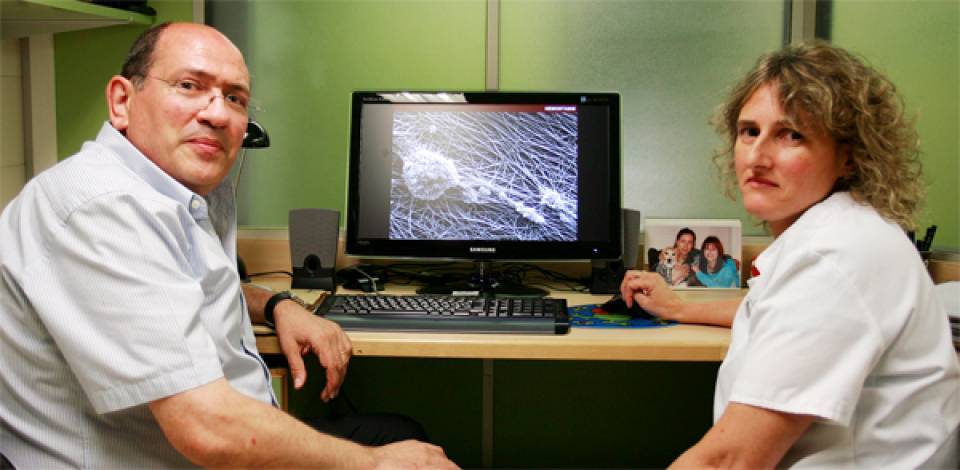The Sintrom is reversible in hours thanks to vitamin K and in minutes using prothrombin complex, very useful for instance when it is necessary to perform a heart surgery. The team led by Dr. Ginés Escolar studied how they could reverse the effects of new anticoagulants. Based on results with animal models they analyzed in vitro the usefulness of three therapies to counteract the effect of apixaban, one of the anticoagulants, circulating in human blood on an already damaged vascular segment. Studied therapies were recombinant factor VII and activated and not activated prothrombin complex.
The results showed that the three compounds could be used to cope with bleeding disorders that might be generated by apixaban. While the activated and not activated prothrombin complex seemed to be more efficient than recombinant factor VII in restoring the generation of thrombin, this clotting factor was the fastest in producing a compact thrombus, followed by the activated and not activated prothrombin complex.
These results open the possibility to investigate the right dose of reversing agents such as prothrombin, which could compensate the defects of the new drugs and generate data for a clinical trial. The study also concludes that there is no antiplatelet direct effect of apixaban, it seems to be the decreased thrombin generation what has an indirect effect on platelets. The researchers conclude that the non-activated prothrombin complex could offer better security and overall performance, while recombinant factor VIIa would be the most powerful option although its side effects must be further studied.

